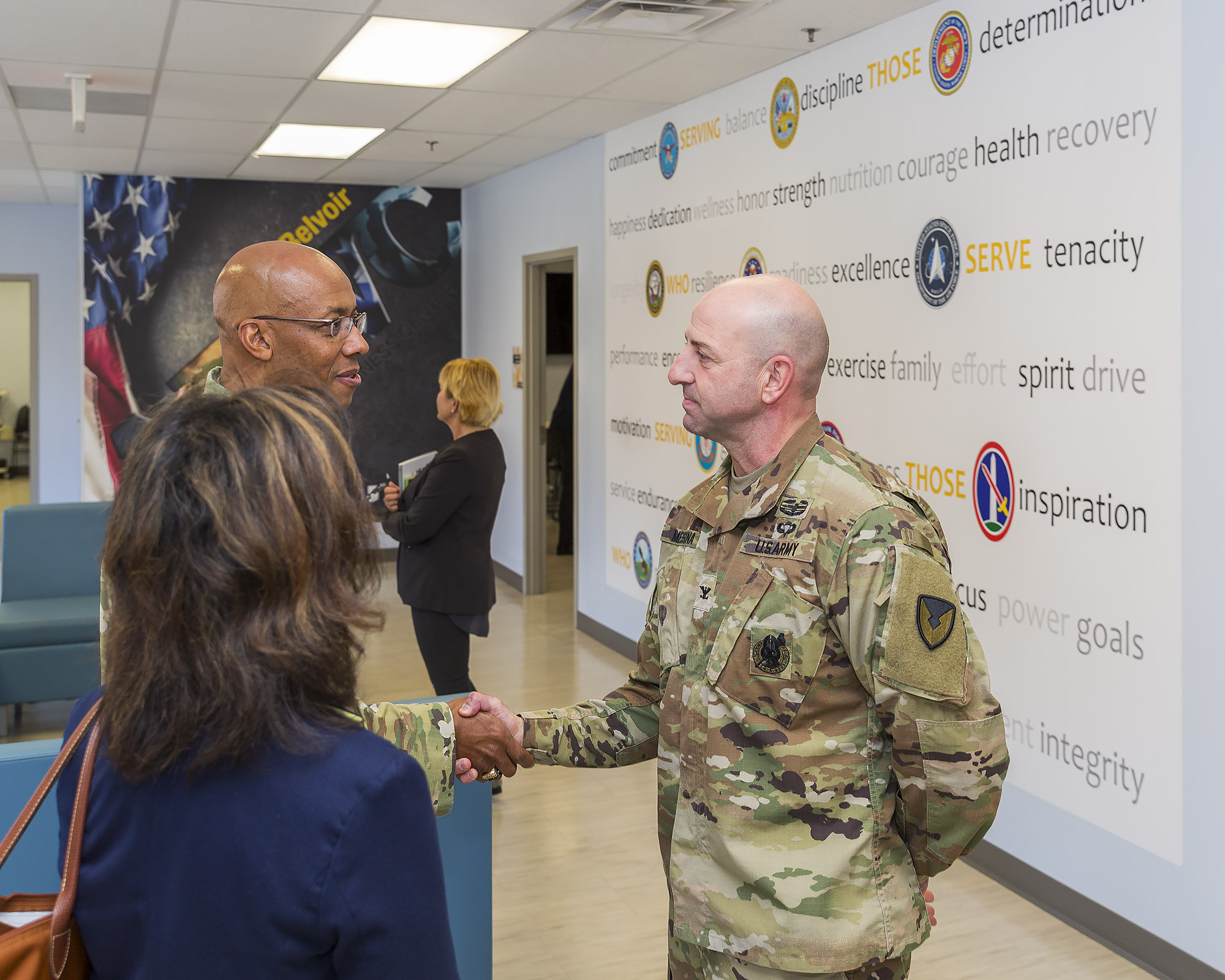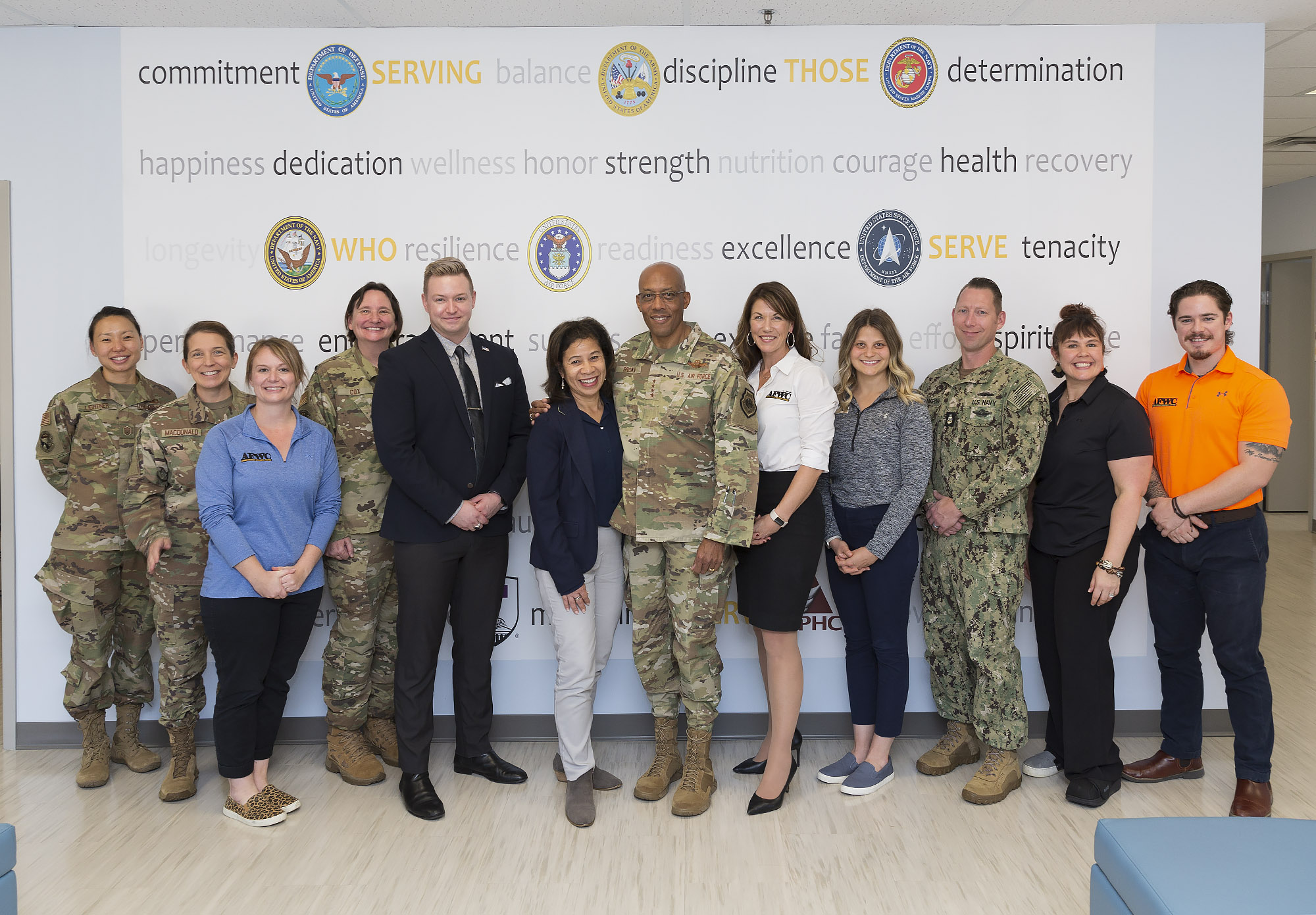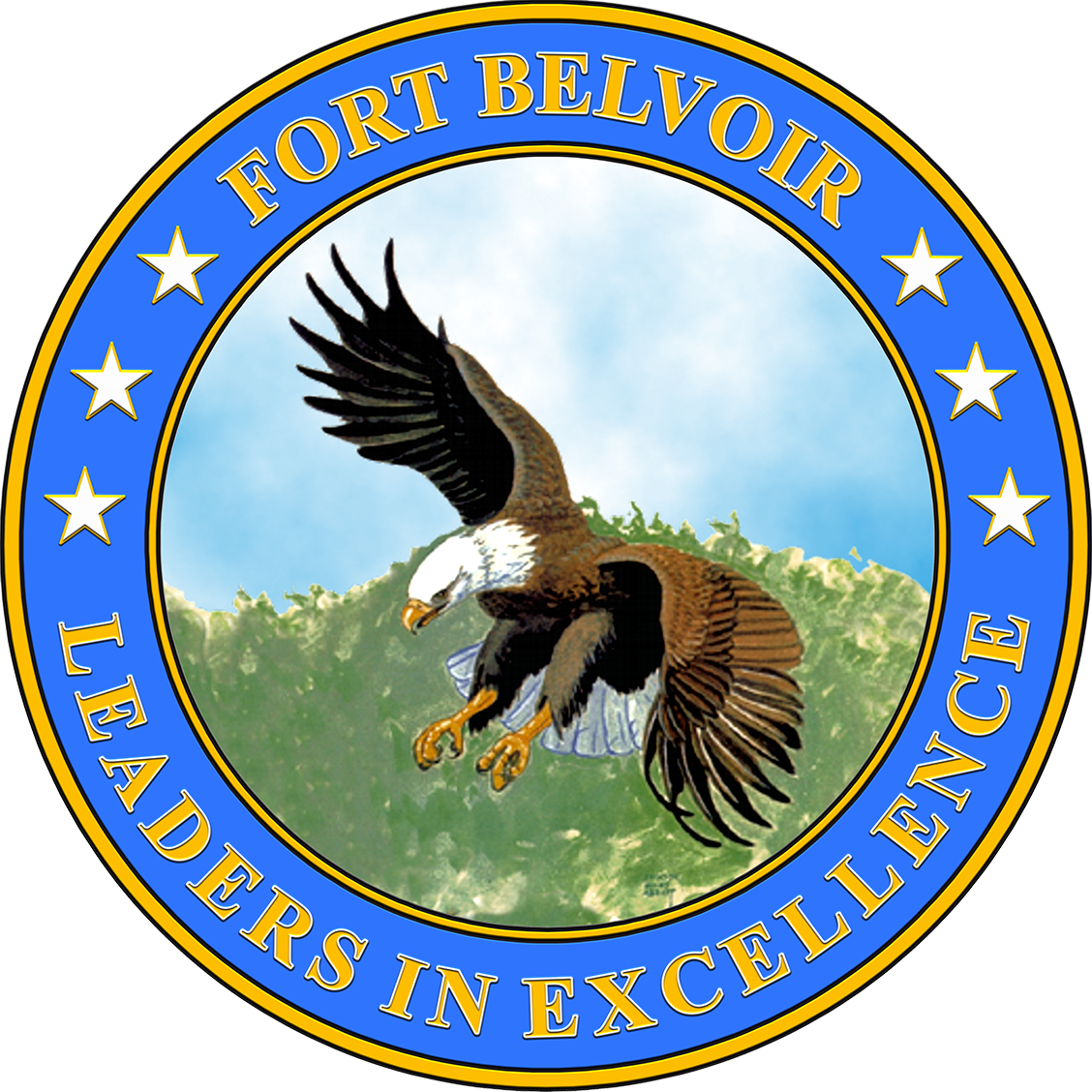
GEN CQ Brown, Jr, Chief of Staff, U.S. Air Force, left, speaks with COL Joe Messina, Fort Belvoir Garrison Commander, as he tours the Armed Forces Wellness Center, Nov 3. The facility delivers evidence-based programs that improve individual and unit readiness delivered by highly-trained health and human performance professionals.
Chief of Staff of Air Force visits Fort Belvoir Armed Forces Wellness Center
GEN CQ Brown, Jr., Chief of Staff of the Air Force, and his spouse, Mrs. Sharene Brown, recently visited the Fort Belvoir Armed Forces Wellness Center (AFWC) to evaluate its assistance to at-risk service members and to see how aligned it is to support the CSAF’s Spectrum of Resilience memo.
Members of the U.S. Air Force Band offered testimony on how the AFWC directly improved the health, wellness and readiness of the Band, according to Dr. Michael Jarka, the program manager for all 35 Army Wellness Centers.
“This is a standardized model – almost a franchise model – and we want to bring that to the Air Force,” Jarka said. “We’re getting the Air Force to buy into the franchise and then further spread Wellness Centers to serve Airmen as well.”
Jarka said the principal intention of Wellness Centers is to increase readiness for individuals who are at risk.
“These are typically individuals who perhaps have some sort of injury; they're at risk for failing a fitness test,” said Jarka. “They're at risk for being on the Army Body Composition Program, or in general, they're having some sort of problem with their health. They come into a Wellness Center and we are able to address those concerns and restore these individuals back to optimal readiness.”
Jarka added that throughout the journey to readiness, the center tracks metrics, such as how much weight was lost, increases in fitness levels, and decreases in risky behavior or risks to particular health outcomes. Jarka emphasized the data-gathering is amplified with one-on-one health coaching sessions.
“Whether it's a fitness assessment, body composition or metabolic testing, after they get those results, they sit with the health educator, and we can peel back that onion back and talk about what's going on in their life and what their barriers to health change might be,” he said. “And if it starts to become something that they disclose that perhaps might be outside of our scope of practice, we really pride ourselves on being a good community partner and knowing where to refer them,” adding that AFWC is focused on improving Mind, Body and Spirit.

After an extensive tour and briefing, GEN Brown told the Belvoir Eagle that this standardized model could benefit the Air Force.
“It's something I think we should be able to see across the forces. You know, we've had similar programs, but I think they're probably ahead of their time in some areas,” Brown said. “There's areas in here with a connection to the medical facility and medical treatment facility as well as the collection of data that we weren't doing in the Air Force previously, but I think there's some opportunities to build on what we're seeing here and make it part of the Air Force as well.”
Dr. Jarka said the data shows that personal coaching and repeated follow-ups is improving readiness.
“it's creating that relationship with the individual getting them to come back for follow ups, that we’re really able to create sustained lifestyle change, which is what we're getting after here when we're looking at long term outcomes. This is not a short-term fix.”
The AFWC is available at no cost to active duty, family members, retirees, DoD civilians and Reserve and Guard troops when they’re on active orders.
To schedule an appointment, call the AFWC at 703-806-1323
Paul Lara - Fort Belvoir Public Affairs specialist





